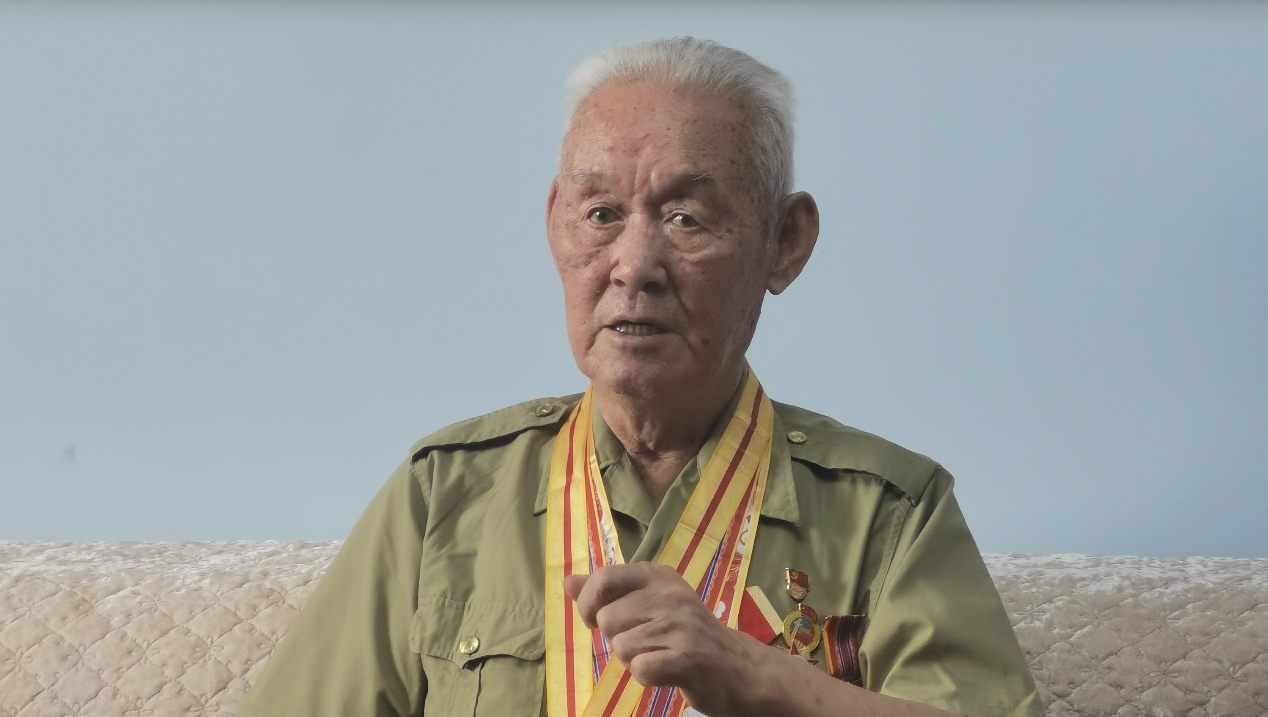Wen Yunfu, a 96-year-old veteran of the Chinese People's War of Resistance Against Japanese Aggression, still remembers the autumn of 1937. Only months after the Lugou Bridge Incident on July 7 that year, Japanese forces were already closing in on his village in Hebei province.

Wen Yunfu, a veteran of the Chinese People's War of Resistance Against Japanese Aggression. [Photo by Wang Xingguang/China.org.cn]
A sense of dread enveloped the village. The residents knew that whenever the Japanese arrived, they would be rounded up and forced into hard labor like building fortifications, digging trenches, and constructing roads.
The fear intensified as the Japanese tightened their grip, setting up fortifications and military outposts throughout the area. One major outpost stood just about 1.5 kilometers from Wen's village.
Wherever the Japanese occupied, they imposed the "Three Alls Policy," a brutal strategy of "kill all, burn all, and loot all," Wen recalled. "They slaughtered villagers with bayonets and threw their bodies into wells."
Wen's family was not spared. His own loss came in 1942, when he was just 13. His uncle, the local Party secretary, was surrounded by Japanese troops and then killed on the spot as he had no ammunition left.
Under the "burn all" strategy, houses in Wen's village were set on fire, including his own.
Wen remembered how, in summer, as the sorghum grew tall in the fields, Japanese soldiers destroyed the entire crops, as they would not risk the tall stalks hiding soldiers of China's Eighth Route Army.
"Life for the villagers was extremely difficult and bitter back then," Wen said. "At our worst, we had nothing to eat but chaff and cotton seeds. When even that ran out, people would strip bark from elm trees, grind it into powder, mix it with a little grain flour, and eat it — just to survive."
In March 1945, Wen joined the Eighth Route Army and was dispatched to work in an arsenal to make hand grenades.
"Our country was pretty impoverished back then, so we could only produce some simple weapons ourselves," Wen said, adding that as soon as the grenades were made, they were supplied to the troops right away.
Looking back on those difficult years, Wen reflected on the progress that has since been made in China-Japan relations: "In my childhood, I deeply hated Japan because it was invading China at the time. But over the years, the Japanese people have gradually become friendlier toward the Chinese. I hope the relationship between China and Japan continues to improve."
"We don't want war, and we don't want aggression," he added.


 Share:
Share: 




 京公网安备 11010802027341号
京公网安备 11010802027341号